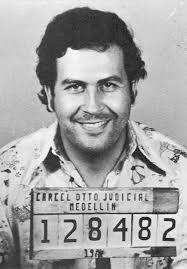
Introduction
Pablo Escobar, the infamous Colombian drug lord, is a figure whose actions continue to spark debate and analysis decades after his death in 1993. Known for his role as the head of the Medellín Cartel, Escobar’s impact on Colombia and the global drug trade is profound, intertwining tales of wealth, violence, and humanitarian efforts. Understanding Escobar is crucial not only for grasping the history of drug trafficking but also for examining its lasting repercussions on society, law enforcement, and international relations.
Escobar’s Rise to Power
Pablo Emilio Escobar Gaviria was born on December 1, 1949, in Rionegro, Colombia. His career in crime began with petty thefts and gradually evolved into a multi-billion-dollar cocaine empire. By the 1980s, Escobar had established the Medellín Cartel, which controlled a significant portion of the cocaine entering the United States, earning him the nickname “The King of Cocaine.” His wealth allowed him to build lavish estates, fund social projects, and even run for political office, portraying himself as a Robin Hood figure.
Violence and Power
However, Escobar’s reign was marked by extreme violence. He was responsible for thousands of deaths, including judges, politicians, and innocent civilians, as he retaliated against any threats to his empire. The infamous bombing of Avianca Flight 203 in 1989 and the assassination of presidential candidate Luis Carlos Galán exemplified the brutality of his operations. The Colombian government, with support from the U.S., embarked on a mission to dismantle his cartel, leading to a violent conflict that shaped the country’s future.
Legal and Humanitarian Efforts
In a bid to rehabilitate his public image, Escobar invested in low-income housing projects, schools, and sports facilities in Medellín. This duality of his character, a ruthless kingpin yet a benefactor to the poor, complicates his legacy. While some remember him for his philanthropy, the fear and violence he perpetuated overshadow these contributions.
Conclusion
Pablo Escobar’s life is a stark reminder of the complexities of power, crime, and morality. His legacy continues to be studied and debated, as episodes of his life inform current discussions about drug policy, criminal justice, and the socio-political environment in Colombia. As the world grapples with the ongoing issues related to drug trafficking, the lessons learned from Escobar’s reign remain relevant, highlighting the need for comprehensive approaches to tackle the roots of drug-related violence and crime.



